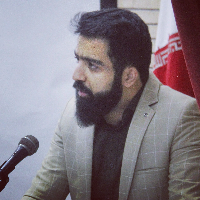The Role of Institutional Quality in the Technical Efficiency of the Selected Countries of Asia and the Middle East: Stochastic Frontier Analysis Approach
There are many researches about the role of institutions in different aspects of economic performance. However, in the context of institutional analysis, the issue of technical efficiency has been neglected. This paper investigates the role of institutional quality in the technical efficiency of selected countries in Asia and the Middle East using the stochastic frontier analysis (SFA) approach over the period 1996-2017. By adopting the maximum likelihood estimation (MLE), the estimates associated with the production function and the technical inefficiency equation have been obtained. The examination of technical efficiency based on institutions was carried out in accordance with the Battese and Coeli’s (1995) and Green’s (2005) model in the form of Cobb-Douglass function and using Institutional indicators of governance and then institutional indicators of CIRI. Estimates in both cases represent the fact that a significant part of the technical inefficiency was due to the weak and undesirable qualities of the governing institutions of these countries. Moreover, the estimated results show that inspite of the balanced situation in production inputs, due to institutional weakness among selected countries, Iran is the most inefficient country in terms of technical effeciancy. This empirical finding further emphasizes the need for institutional reform.
-
Institutional Congruity and Political Economy Equilibrium of Contemporary Iran: A Game Theory Approach
, Rouhollah Shahnazi, Seyyed Aqil Hoseiny *
Iranian Journal of Economic Research, -
Analysis of the Role of Institutional Inconsistency and inefficiency of the governace system in the Underdevelopment of Iran Before the Revolution of 1979
Seyyed Aqil Hoseiny *, , Abdolhamid Moarefi Mohammadi
Biannual Journal Eqtesad-e Tatbigi,


